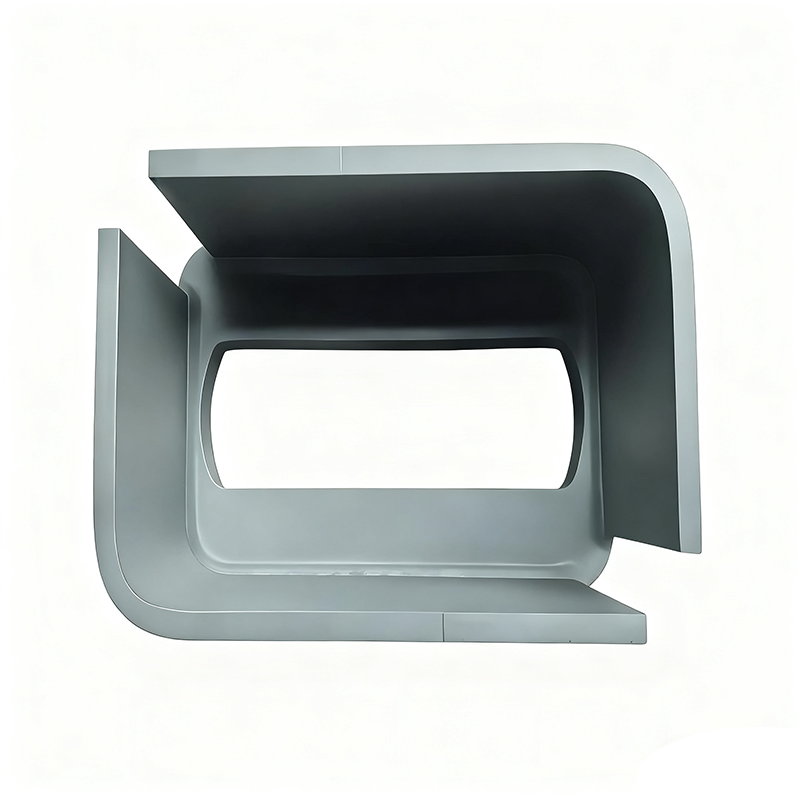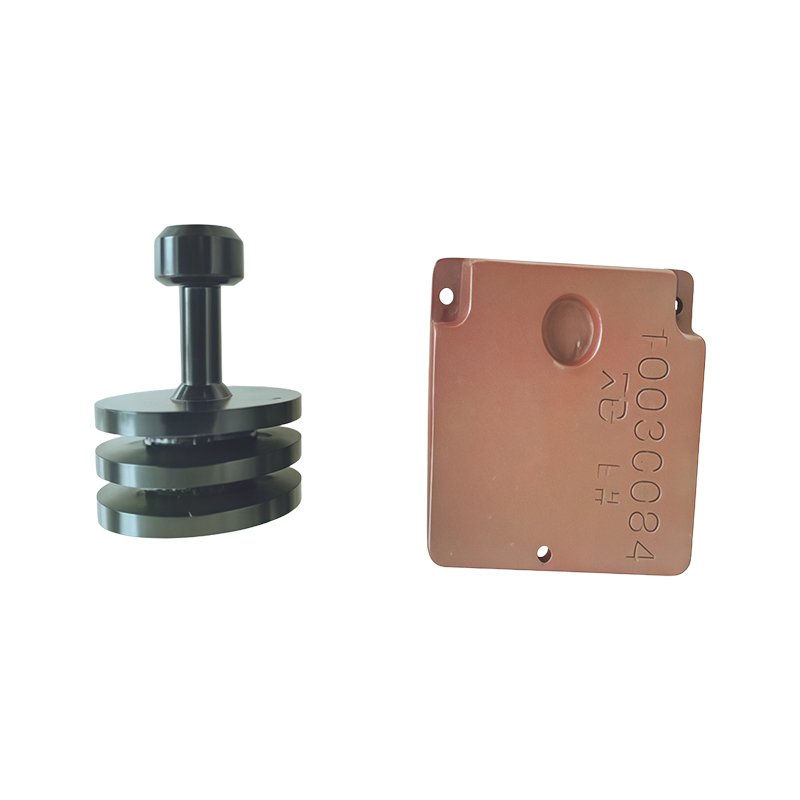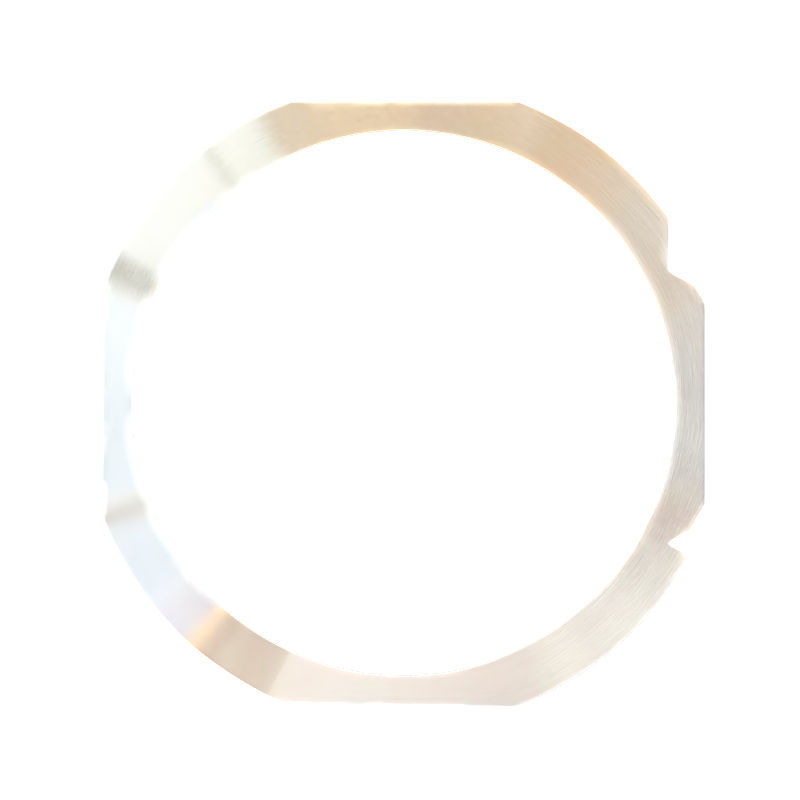How can the chemical stability advantages of casting customization be adapted to corrosive working environments?
Release Time : 2025-09-24
In modern industrial systems, numerous equipment, such as chemical equipment, marine engineering, sewage treatment systems, oil and gas pipelines, and power generation equipment, operates continuously in corrosive environments such as acids, alkalis, salt spray, high-temperature gases, or humidity. Under these harsh operating conditions, the corrosion resistance of components is directly related to equipment safety, service life, and maintenance costs. As a fundamental component of industrial manufacturing, casting customization, with its choice of highly corrosion-resistant materials, integrated structural molding, and excellent chemical stability, is an ideal choice for addressing corrosion challenges and is widely used in the manufacture of various key corrosion-resistant components.
1. Selecting Corrosion-Resistant Alloy Materials to Enhance Resistance from the Source
The chemical stability of casting customization stems primarily from its wide selection of raw materials. Unlike many processing methods, the casting process can flexibly adapt to a wide range of high-performance alloys, such as stainless steel, nickel-based alloys, copper alloys, and corrosion-resistant cast iron. These materials inherently possess excellent resistance to oxidation, acid and alkali attack, and electrochemical corrosion. Through scientific material selection, casting customization can provide "gene-level" protection against specific corrosive media from the design stage.
2. Integrated Molding Avoids Weak Joints
In corrosive environments, welded joints, bolted connections, or gaskets are often the first sites of corrosion. These areas are prone to crevice corrosion, stress corrosion cracking, or galvanic corrosion. One of the greatest advantages of customized casting is the ability to mold complex structures in one piece, reducing or even eliminating assembly connections. For example, a pump casing with internal flow channels, flange connections, and support structures can be cast as a single piece, eliminating potential corrosion sources such as welds and sealing surfaces. This "no welds, few joints" feature significantly improves the component's long-term sealing and structural integrity in corrosive media.
3. Dense Microstructure Enhances Penetration Resistance
High-quality casting processes combined with advanced melting and pouring techniques effectively control the internal quality of customized castings, reducing defects such as porosity, shrinkage, and inclusions. These microscopic defects are not only stress concentration points but also pathways for corrosive media to penetrate. Through vacuum melting, filtration and purification, sequential solidification, and pressure feeding, a customized casting with a dense microstructure and fine grains is achieved, significantly reducing the penetration paths for corrosive media. In addition, the surface can be pre-treated with shot blasting, smearing, or coating to further seal surface micropores and enhance resistance to incipient corrosion.
4. Surface Stability and Passive Film Formation
When exposed to corrosive environments, casting customization materials spontaneously form a dense, stable passive film on their surface. For example, stainless steel rapidly forms a chromium-rich oxide film in an oxidizing environment, preventing further corrosion of the underlying metal. Because casting customization materials are homogeneous throughout the material, this protective film is continuously distributed across the entire surface and is less susceptible to breakage due to processing deformation. Even with minor scratches during use, the film exhibits self-healing properties, regenerating in the presence of oxygen to provide continuous protection. This adaptive protective mechanism ensures that casting customization materials maintain stable chemical properties over long periods of service.
5. Comprehensive Resistance to Extreme Operating Conditions
In addition to chemical corrosion, many industrial environments are also characterized by high temperatures, high pressures, and mechanical wear. High-quality casting customization materials not only resist chemical attack but also exhibit excellent thermal stability, high strength, and wear resistance. For example, in the petrochemical industry, corrosion-resistant cast steel valves must withstand the erosion and corrosion of high-temperature, high-pressure oil and gas. In seawater desalination equipment, bronze impellers must resist cavitation and salt corrosion from high-velocity seawater. Through material optimization and process control, casting customization enables long-term, stable operation under harsh, multi-factor coupled conditions, reducing downtime and maintenance frequency and improving system reliability.
Casting customization, with its diverse material selection, structural design integrity, microstructure density, and surface passivation capabilities, demonstrates superior chemical stability. It not only resists corrosion from a variety of corrosive media, including acids, alkalis, salts, and moisture, but also maintains long-term performance stability under complex operating conditions.
1. Selecting Corrosion-Resistant Alloy Materials to Enhance Resistance from the Source
The chemical stability of casting customization stems primarily from its wide selection of raw materials. Unlike many processing methods, the casting process can flexibly adapt to a wide range of high-performance alloys, such as stainless steel, nickel-based alloys, copper alloys, and corrosion-resistant cast iron. These materials inherently possess excellent resistance to oxidation, acid and alkali attack, and electrochemical corrosion. Through scientific material selection, casting customization can provide "gene-level" protection against specific corrosive media from the design stage.
2. Integrated Molding Avoids Weak Joints
In corrosive environments, welded joints, bolted connections, or gaskets are often the first sites of corrosion. These areas are prone to crevice corrosion, stress corrosion cracking, or galvanic corrosion. One of the greatest advantages of customized casting is the ability to mold complex structures in one piece, reducing or even eliminating assembly connections. For example, a pump casing with internal flow channels, flange connections, and support structures can be cast as a single piece, eliminating potential corrosion sources such as welds and sealing surfaces. This "no welds, few joints" feature significantly improves the component's long-term sealing and structural integrity in corrosive media.
3. Dense Microstructure Enhances Penetration Resistance
High-quality casting processes combined with advanced melting and pouring techniques effectively control the internal quality of customized castings, reducing defects such as porosity, shrinkage, and inclusions. These microscopic defects are not only stress concentration points but also pathways for corrosive media to penetrate. Through vacuum melting, filtration and purification, sequential solidification, and pressure feeding, a customized casting with a dense microstructure and fine grains is achieved, significantly reducing the penetration paths for corrosive media. In addition, the surface can be pre-treated with shot blasting, smearing, or coating to further seal surface micropores and enhance resistance to incipient corrosion.
4. Surface Stability and Passive Film Formation
When exposed to corrosive environments, casting customization materials spontaneously form a dense, stable passive film on their surface. For example, stainless steel rapidly forms a chromium-rich oxide film in an oxidizing environment, preventing further corrosion of the underlying metal. Because casting customization materials are homogeneous throughout the material, this protective film is continuously distributed across the entire surface and is less susceptible to breakage due to processing deformation. Even with minor scratches during use, the film exhibits self-healing properties, regenerating in the presence of oxygen to provide continuous protection. This adaptive protective mechanism ensures that casting customization materials maintain stable chemical properties over long periods of service.
5. Comprehensive Resistance to Extreme Operating Conditions
In addition to chemical corrosion, many industrial environments are also characterized by high temperatures, high pressures, and mechanical wear. High-quality casting customization materials not only resist chemical attack but also exhibit excellent thermal stability, high strength, and wear resistance. For example, in the petrochemical industry, corrosion-resistant cast steel valves must withstand the erosion and corrosion of high-temperature, high-pressure oil and gas. In seawater desalination equipment, bronze impellers must resist cavitation and salt corrosion from high-velocity seawater. Through material optimization and process control, casting customization enables long-term, stable operation under harsh, multi-factor coupled conditions, reducing downtime and maintenance frequency and improving system reliability.
Casting customization, with its diverse material selection, structural design integrity, microstructure density, and surface passivation capabilities, demonstrates superior chemical stability. It not only resists corrosion from a variety of corrosive media, including acids, alkalis, salts, and moisture, but also maintains long-term performance stability under complex operating conditions.






